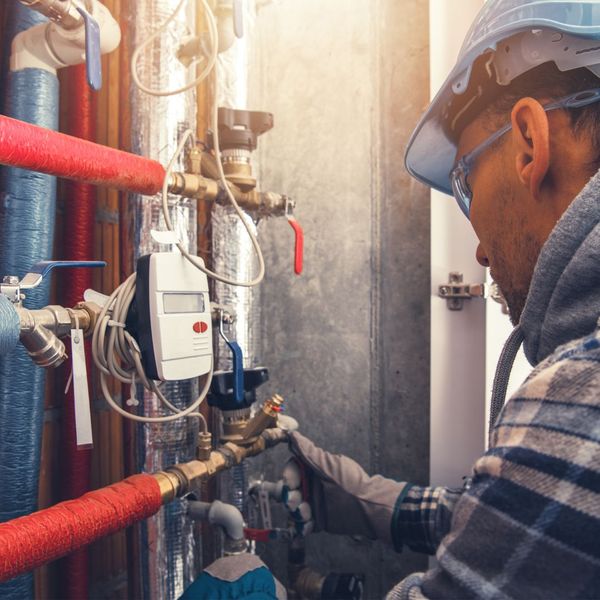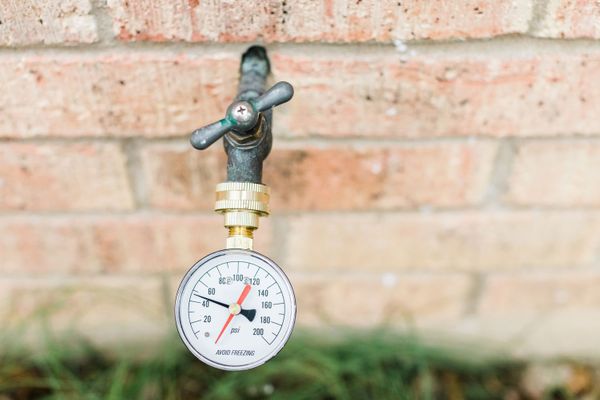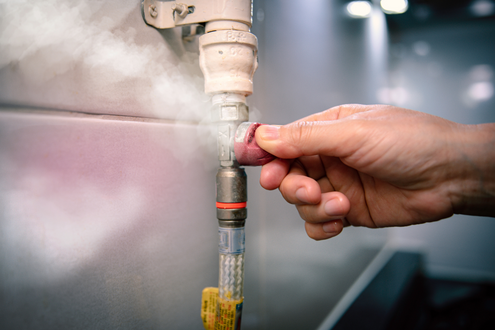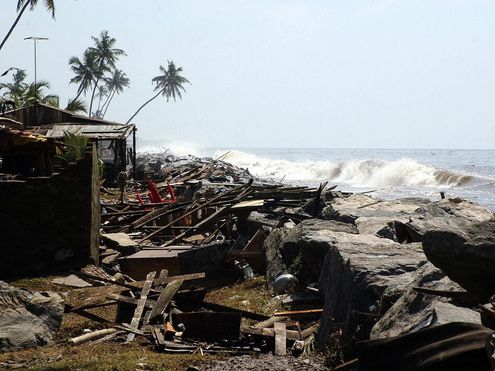Earthquakes are a natural disaster that can cause significant damage to buildings and infrastructure. While most people are aware of the potential damage to structures such as buildings and roads, many do not consider the impact that earthquakes can have on plumbing systems. In this article, we will explore how earthquakes can affect plumbing systems and what steps can be taken to mitigate this damage. In this blog post from Spot On Plumbing, we will delve into the reasons why this type of home maintenance matters, and don’t forget to contact us anytime for 24-hour plumbing services.
How Can Tulsa Earthquakes Affect Plumbing Systems?
Brandon Brown

The Impact of Tulsa Earthquakes on Plumbing Systems
During an earthquake, the ground can shift and move in unpredictable ways. This movement can cause pipes to shift, crack, or even break completely. This can result in leaks, burst pipes, and even complete water line failures. In addition, the shaking and vibrations from an earthquake can cause joints and connections in plumbing systems to loosen, leading to leaks and potential water damage.
Another potential impact of earthquakes on plumbing systems is damage to water heaters. These appliances are often located in garages or basements, which are areas that are more susceptible to earthquake damage. If a water heater is not properly secured, it can topple over during an earthquake, causing damage to the unit and potentially causing a gas or water leak.

Seismic Retrofitting for Plumbing Systems
One way to mitigate the potential damage to plumbing systems during an earthquake is through seismic retrofitting. This is the process of reinforcing and securing the structure of a building to make it more resistant to seismic activity. In terms of plumbing systems, this can involve securing pipes and water heaters to the structure of the building to prevent them from shifting or falling during an earthquake.
Seismic retrofitting can also involve installing flexible connectors in plumbing systems. These connectors allow for some movement during an earthquake, reducing the risk of pipes breaking or joints loosening. Additionally, seismic shut-off valves can be installed to automatically shut off the water supply in the event of an earthquake, preventing potential water damage.
By scheduling service with our Spot On plumbers in Tulsa, we can perform necessary leak detection and fix any sort of water leak issue.

Earthquakes cause water pressure fluctuations
Tulsa Earthquakes are a natural phenomenon that can cause significant damage to buildings, infrastructure, and the environment. While most people are aware of the ground shaking and structural damage that earthquakes can cause, many are unaware of the potential impact on water systems.
We will explore how earthquakes can cause water pressure fluctuations and the potential consequences of these fluctuations. We will also discuss ways to mitigate the effects of earthquakes on water systems.
Understanding Earthquakes and Water Pressure
Before we dive into the specifics of how earthquakes can affect water pressure, it's important to understand the basics of both earthquakes and water pressure.
What is an Earthquake?
An earthquake is a sudden and rapid shaking of the ground caused by the shifting and breaking of rock beneath the Earth's surface. This movement releases energy in the form of seismic waves, which can cause the ground to shake and vibrate.
Earthquakes can range in intensity from barely noticeable tremors to catastrophic events that cause widespread damage and loss of life. They can occur anywhere in the world, but are most common in areas where tectonic plates meet, such as the Pacific Ring of Fire.
What is Water Pressure?
Water pressure is the force exerted by water against the walls of its container. In a water system, this pressure is created by the weight of the water above and is measured in pounds per square inch (psi).
Water pressure is essential for the proper functioning of a water system. It allows water to flow through pipes and reach its intended destination, such as a faucet or showerhead.
How Earthquakes Affect Water Pressure
When an earthquake occurs, the ground shakes and moves, causing the soil and rocks to shift and settle. This movement can have a significant impact on water systems, leading to fluctuations in water pressure.
Ground Shaking
The most obvious way that earthquakes can affect water pressure is through ground shaking. As the ground moves, it can cause pipes to shift and break, leading to leaks and disruptions in the water supply.
In areas with older or poorly maintained water systems, ground shaking can cause significant damage and result in a loss of water pressure. This can be especially problematic in the event of a major earthquake, where repairs may take time to complete.
Changes in Groundwater Levels
Earthquakes can also cause changes in groundwater levels, which can have a direct impact on water pressure. When the ground shifts, it can create new pathways for water to flow, leading to changes in the water table.
These changes can result in fluctuations in water pressure, as the water system tries to adjust to the new levels. In some cases, this can lead to a loss of water pressure, while in others, it can cause an increase in pressure.
Damage to Water Infrastructure
In addition to ground shaking, earthquakes can also cause damage to water infrastructure, such as reservoirs, treatment plants, and pumping stations. This damage can disrupt the flow of water and lead to fluctuations in pressure.
In areas with a high risk of earthquakes, it's essential to have well-maintained and earthquake-resistant water infrastructure to minimize the impact of an earthquake on the water system.

The Consequences of Water Pressure Fluctuations
Water pressure fluctuations can have a range of consequences, from minor inconveniences to significant damage and safety hazards.
Inconveniences
Minor fluctuations in water pressure may not seem like a big deal, but they can be a significant inconvenience for those affected. Fluctuations can cause showers to suddenly lose pressure, making it difficult to rinse off soap or shampoo. They can also cause faucets to sputter and spit, making it challenging to fill a glass of water or wash dishes.
Damage to Appliances and Fixtures
More significant fluctuations in water pressure can cause damage to appliances and fixtures. High pressure can put stress on pipes and cause them to burst, leading to costly repairs. Low pressure can also be damaging, as it can cause appliances to work harder to compensate for the lack of pressure, leading to increased wear and tear.
Safety Hazards
In some cases, water pressure fluctuations can create safety hazards. For example, if the pressure suddenly drops while someone is taking a shower, it can cause scalding hot water to come out of the faucet. This can result in burns and other injuries.
How to Handle the Effects of Earthquakes on Water Systems
While earthquakes are unpredictable and impossible to prevent, there are steps that can be taken to mitigate their impact on water systems.
Regular Maintenance and Inspections
One of the best ways to minimize the impact of earthquakes on water systems is to ensure that they are well-maintained and regularly inspected. This includes checking for leaks, repairing any damage, and reinforcing infrastructure to make it more resistant to earthquakes.
Emergency Preparedness Plans
Having an emergency preparedness plan in place can help minimize the impact of an earthquake on a water system. This plan should include steps for shutting off the water supply in the event of a major earthquake, as well as procedures for quickly repairing any damage.
Earthquake-Resistant Infrastructure
In areas with a high risk of earthquakes, it's essential to have earthquake-resistant water infrastructure. This can include reinforced pipes, storage tanks, and treatment plants that can withstand the shaking and movement caused by an earthquake.

Real-World Examples of Earthquakes Causing Water Pressure Fluctuations
The 2011 earthquake and tsunami in Japan is a prime example of how earthquakes can affect water systems. The earthquake, which measured 9.0 on the Richter scale, caused significant damage to water infrastructure, leading to water pressure fluctuations and disruptions in the water supply.
In the aftermath of the earthquake, many residents were left without access to clean water, as the water system struggled to cope with the damage caused by the earthquake and tsunami.
Conclusion
Earthquakes can have a significant impact on water systems, causing fluctuations in water pressure that can lead to inconveniences, damage, and safety hazards. By understanding how earthquakes affect water pressure and taking steps to mitigate their impact, we can help ensure that our water systems remain functional and safe in the event of an earthquake.
Remember to regularly maintain and inspect water infrastructure, have an emergency preparedness plan in place, and invest in earthquake-resistant infrastructure to minimize the impact of earthquakes on water systems. By doing so, we can help protect our communities and ensure access to clean water, even in the face of natural disasters.
Let Spot On Plumbing professionals help you by scheduling seasonal service and standing by if you need emergency help.
